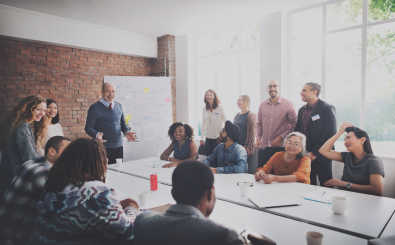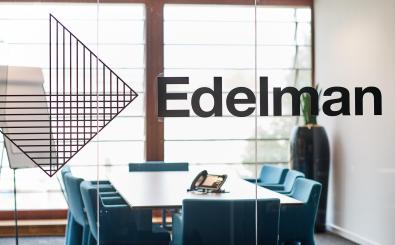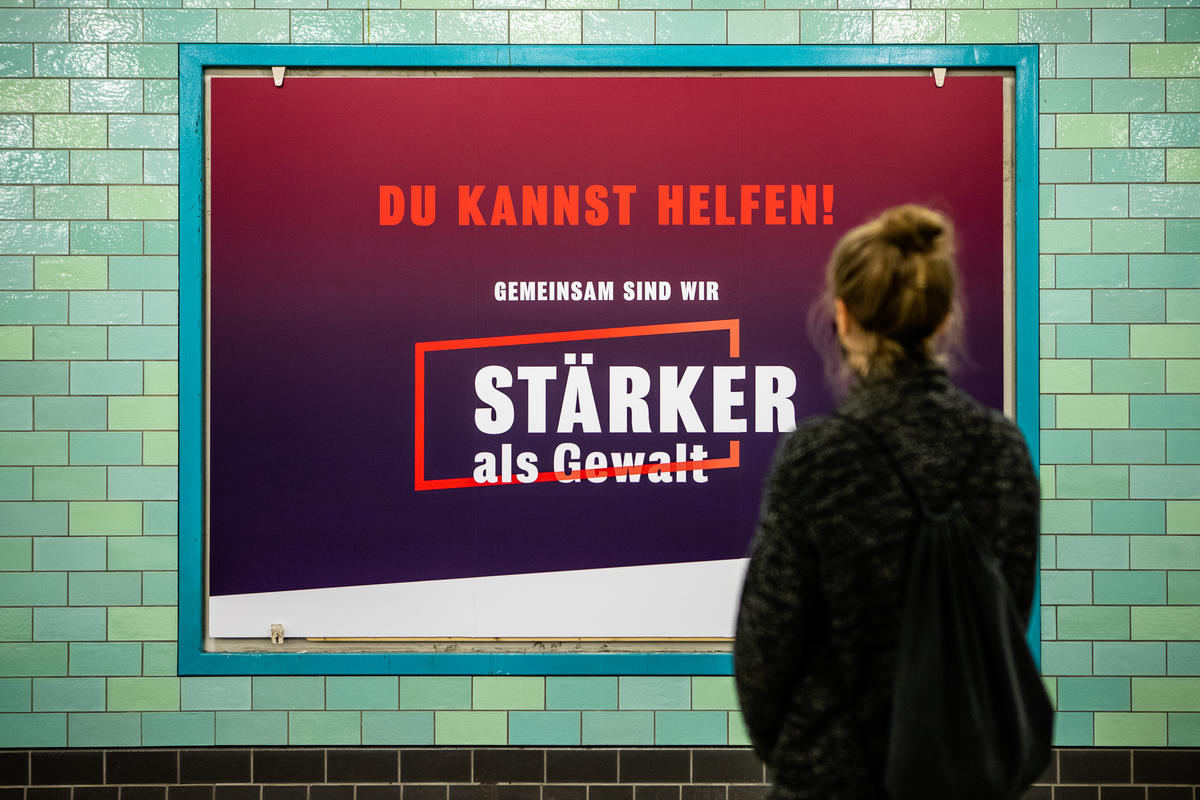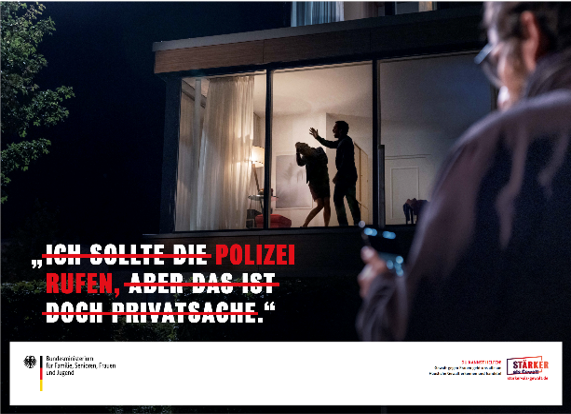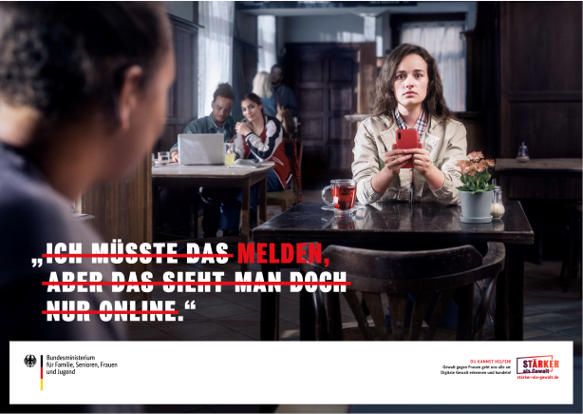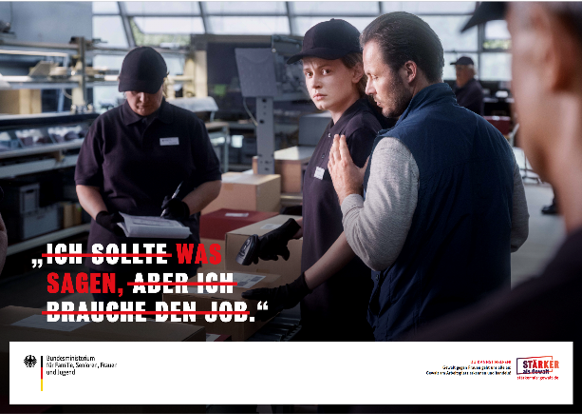One in three women is a victim of physical and/or sexual violence at least once in her life. That means we all know at least one woman who has been affected by violence. It could be a sister, a best friend, or a colleague.
Violence against women concerns us all!
Violence against women? That doesn't affect anyone I know.
Far too many people still think this way. In fact, violence against women is a sad reality in all social classes and age groups. Sexual assaults, bullying, stalking and other forms of sexualised violence occur every day. According to statistics, more than 12 million women nationwide have been affected by physical and/or sexualised violence at least once in their lives. That is every third woman. Still, few people actively stand up against gender-based violence even though 96 % of the population in Germany reject and condemn such assaults.
The Federal Ministry for Family Affairs, Senior Citizens, Women and Youth (BMFSFJ) asked us to:
Develop a campaign against violence against women that:
- Involves the whole of society and motivates people to become active for the cause, so that more affected women – and affected men – have the courage to defend themselves when they experience physical, sexual or psychological violence
- Makes more people close to those affected take notice and provide support
- Helps all affected persons who are threatened by domestic violence find support, especially in times of crisis such as the current corona pandemic
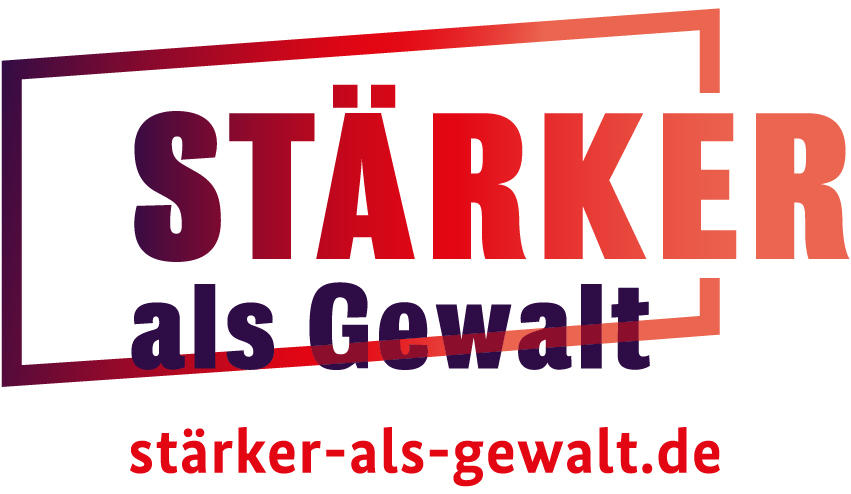
STRATEGY & EXECUTION
Previous campaigns against domestic violence have attempted to do so through images showing beaten or crying desperate victims. This reinforces the idea of the “helpless victim” and the power the perpetrators have over them. Our idea takes a new path. We want to encourage everyone to take action against violence against women. Our campaign draws attention to what every one of us can do to help. To do this, we brought the topic into the personal reality of people's lives. We brought specialised partner organisations that provide help and advice together to create the platform www.stärker-als-gewalt.de, combining access to a variety of nationwide support and counselling services and empowering people to take action.
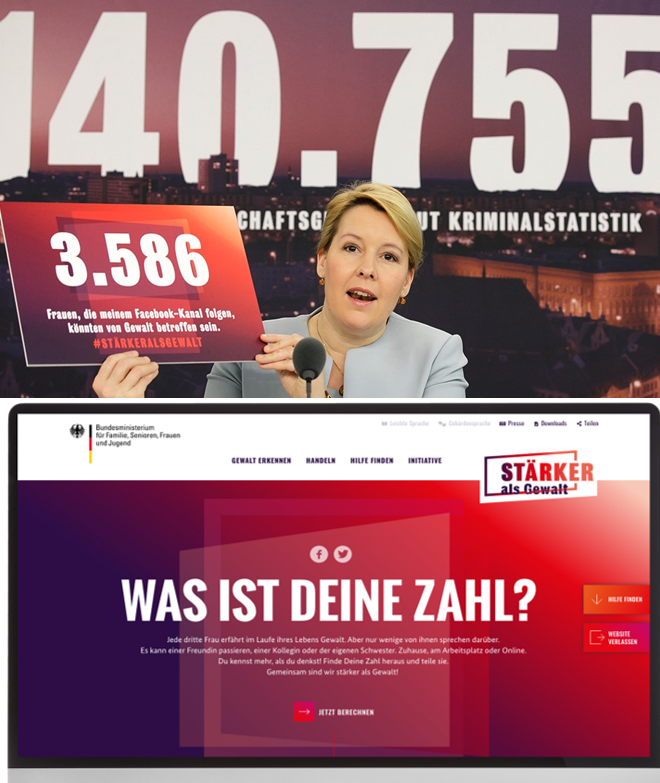
WE WANTED TO KNOW: WHAT IS YOUR NUMBER?
To gain public and media attention to the alarmingly high numbers of women affected by violence in an unusual way, we asked people in Germany at the kick-off in November 2019: "What's your number?"
Because if one in three women in Germany is affected by violence, then each and every one of us knows at least one. We developed a calculator tool for the "Stronger than Violence" website that uses a visitor’s social media to determine the number of women they likely know who have been affected by violence. People could calculate for themselves how many women in their personal environment could have experienced gender-fuelled violence at some point: In their circle of friends or colleagues, in their Facebook community, in their own city.
- For the launch of the initiative on 25 November 2019, we projected animations of the statistically likely number of affected women in the respective area in Germany's 22 largest cities with a guerrilla lighting set up.
- We enlisted support from numerous female influencers and celebrities who posted their personal numbers on social media, drawing attention to the issue and the "What's your number?" campaign.
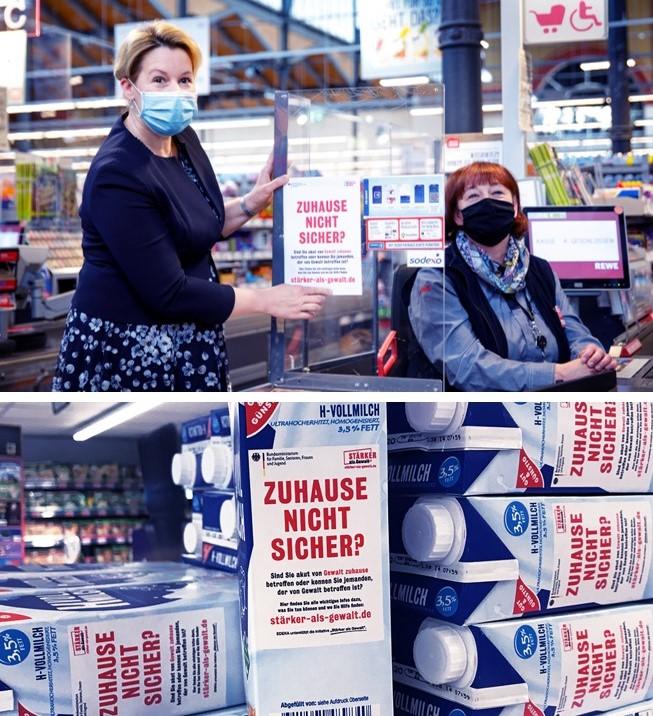
WE ASKED: NOT SAFE AT HOME?
During the corona pandemic one could see tensions grow in German households with every lockdown phase and extensive contact restriction. With them, the risk of domestic violence increased. We took immediate action with "Stronger than Violence" and launched an ad-hoc campaign in a very short time to help affected people.
Our idea
We place notices offering help in the places people still had unrestricted access to even during the lockdown: In supermarkets and on social media.
In cooperation with the eight largest retail chains in Germany, we placed hundreds of thousands of notices about the help "Stronger than Violence" was offering in prominent locations in the markets throughout Germany with the question "Not safe at home?". In this way, we reached not only those affected, but also their neighbours, friends and family members who could help.
Through a smart SEA/social ad campaign, we complemented the on-the-ground efforts to ensure that any person seeking help online during corona would easily find it.
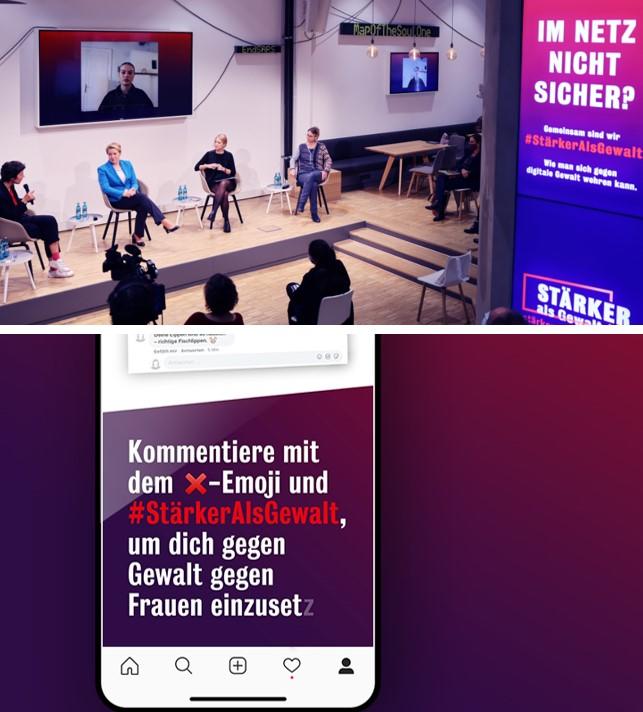
AND WE ALSO ASKED: NOT SAFE ON THE NET?
Digital violence against women on the internet is not an obscure phenomenon, but a growing problem that concerns the whole of society. To ensure that the net remains a place where every woman can move without fear, we made the topic the subject of a digital campaign and showed how anyone can take action against digital violence.
A film as well as attention-grabbing ad formats on social media have impressively illustrated how digital violence can suddenly become a real threat in everyday life.
We have developed special Instagram templates and GIFs against digital violence with which users can react immediately when they encounter it in the form of defamatory comments online. Influencers and celebrities have supported the action on their social channels.
In October 2020, we organised the semi-digital event "Not safe online? Together we are #StärkerAlsGewalt". For this, we established a partnership with the platform Basecamp of Telefonica Deutschland and implemented a live digital discussion with the Federal Minister for Women's Affairs Franziska Giffey and the influencers Cheyenne Ochsenknecht and Diana zur Löwen.
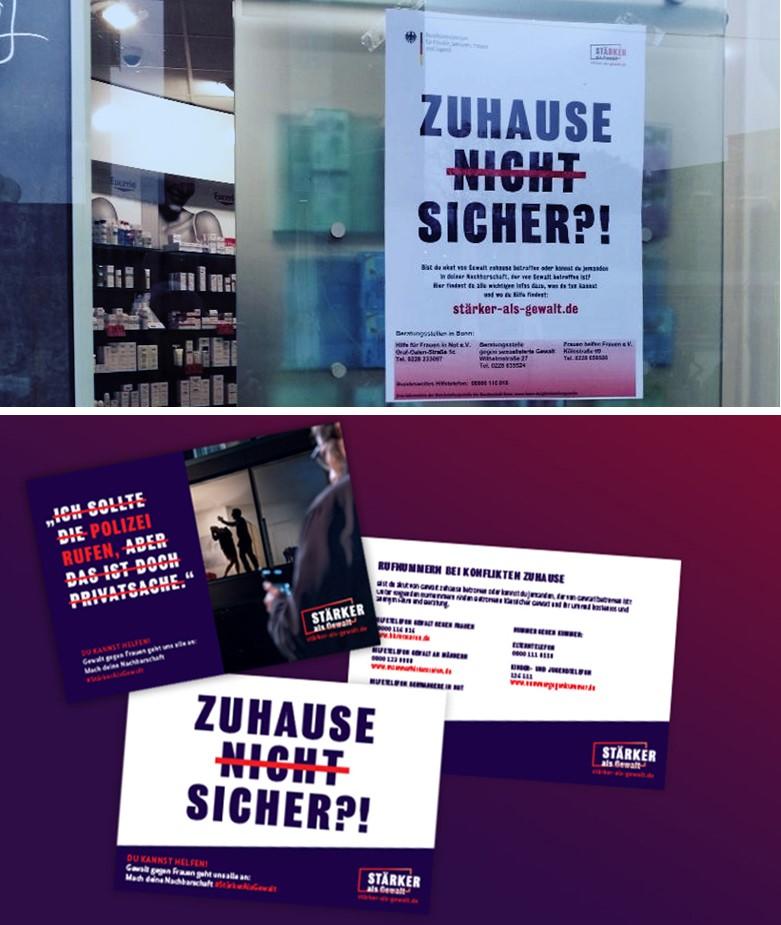
WE GOT THE NEIGHBOURHOOD ON BOARD AGAINST DOMESTIC VIOLENCE
An attentive immediate environment is particularly important in cases of domestic violence in families and partnerships. Neighbours who do not look away, but want to help those affected, show what possibilities there are for action and where they can find support.
That is why we launched a month of action against domestic violence in November 2020.
- In cooperation with supporters from business and civil society – including retail chains, shopping centres, and public transport companies and associations – we drew attention to the "Stronger than Violence" initiative and its offers of help
- A specially developed toolkit offered digital templates for resources that could be quickly and easily implemented on site – in shop windows, on info screens or on websites
- In addition, "Stronger than Violence" was present in 38 German cities with a large out-of-home campaign, which we created specially
On 25 November, the rapper Eko Fresh, whom we were able to win as supporter for the initiative, released his song "Stärker als Gewalt" (Stronger than Violence) with many prominent supporters.
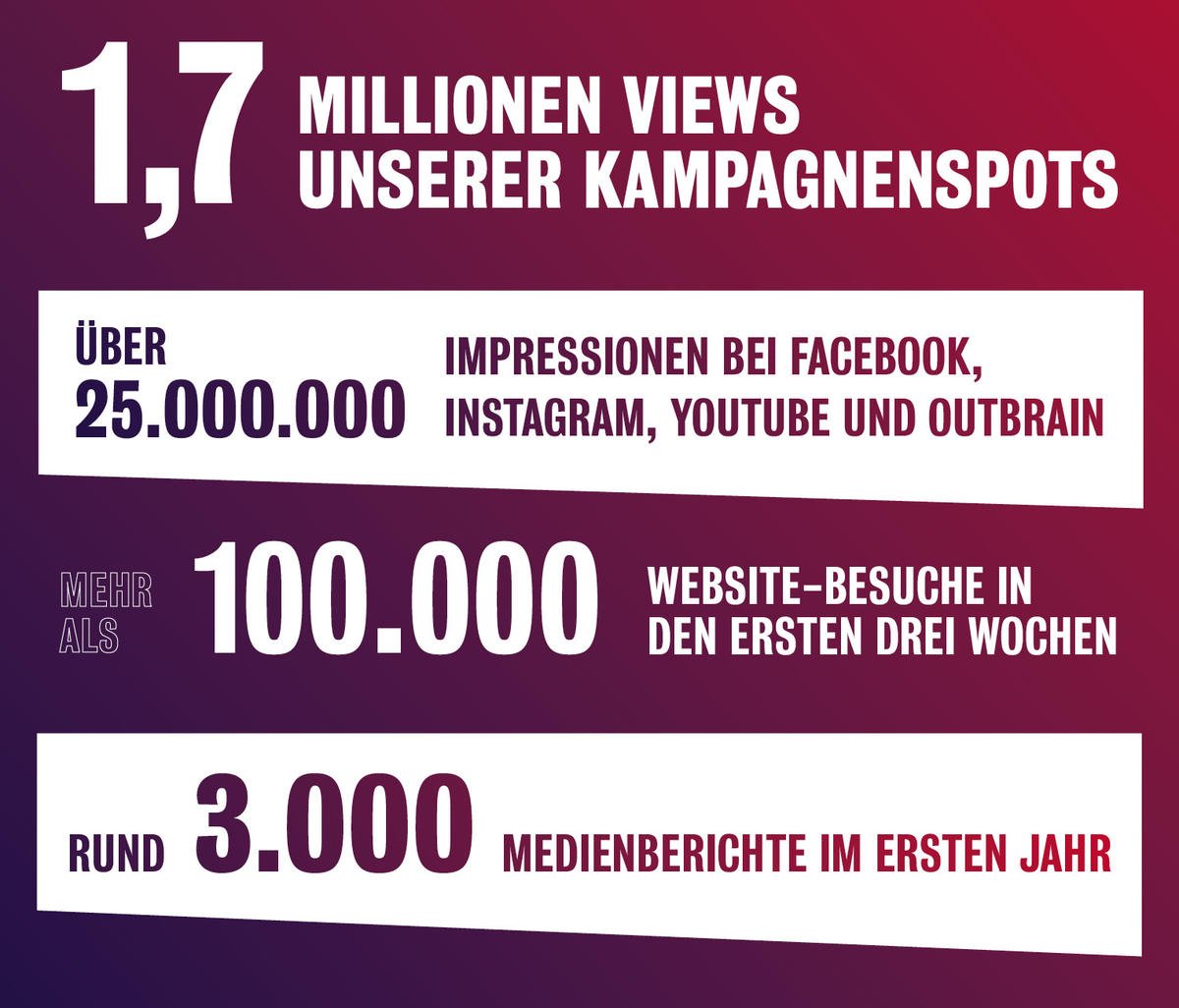
WHAT WE HAVE ACHIEVED
-
Tagesschau lead story on 25.11.2019 on the launch of the initiative
-
Acquisition of more than 100 companies, associations, organisations and municipalities as supporters of the initiative within the first year
-
Involving around 20 high-reach content creators whose posts have achieved 7.5 million impressions
-
Up to 26,000 supermarkets participating in the "Not Safe at Home?" campaign
-
Increase in enquiries to help and counselling centres by approx. 20% in 2020, in particular from the environment of affected people
